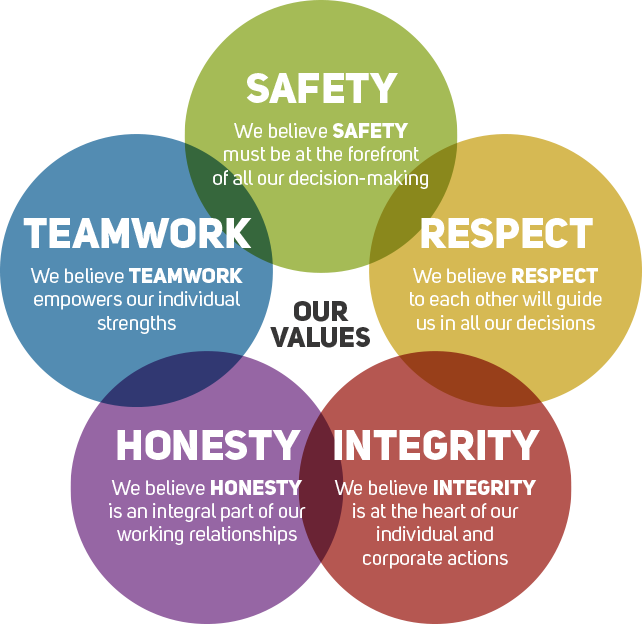P W Well Services’ company values, from http://www.pwwellservices.com/core-values/
This post will tend to speak to private sector employees – unless you’re a sworn pacifist and work in the Ministry of Defence, or someone who has a (conscious or unconscious) hatred of money and you work at the Treasury.
My last office job was at a large defence company. I just had a tiny, unimportant, mundane job in the HR department, but still, working in a company that made arms and weapons etc. never really sat easily with me. I tried to look at it as: “They are helping to safeguard the UK and protect us”, but it didn’t really work.
Sadly, the world probably needs the arms industry. But I don’t have to work in it.
Then there was the company’s publicised mission statement, which included (it doesn’t include this anymore) promoting shareholder value. Now fair enough, pension funds are invested in large companies, so it would benefit me and other average Joes around the UK, but I wanted to do something bigger than this.
It was just shortly before taking this job, that I discovered a desire to really help people in my work. So manufacturing weapons and such an (in my view) small-minded mission didn’t match my own values. When we do things that don’t match our values, there is confusion in our hearts and minds, and where there is confusion in our hearts and minds, we can’t be happy.
For a lot of people, they could get by in a company that didn’t really value its employees. But if you feel very strongly about treating people fairly, about recognising colleagues, and this isn’t happening, then your employer doesn’t match your values, and problems will arise.
If you are expected to just keep plodding along in your job until you’re no longer required or someone better comes along, with no investment or time for training, then if growth and improvement is one of your core values, then you won’t be happy in this role.
The mismatch can even lead to serious stress because we are seeing and doing things we’re not comfortable, yet not stopping our own involvement.
The first step in all of this is clearly to clarify your own values. In work specifically, one way to do this is to consider all of your career experience, and also your school experience. I could list numerous things that I have sworn to do and not do, should I ever employ or manage people in the future. What have you learned from what you’ve seen and experienced?
James Clear lists a lot of possible values you may have – consider what your top 10-20 are, and then the five that are absolutely most important to you. Remember, they may not be the ones you’d expect, or you’d want people to believe you have! But there are no right or wrong answers – your values are yours, and you don’t need to apologise for them.
How do you feel a company should treat its employees? What do you want to be your impact on the world – is your organisation compatible with this?
Job-Hunt suggests some ways to find out the company’s values. Looking on the website is a good start but it isn’t the be-all and end-all. I once worked at a small firm that had a nicely-framed set of company values on the wall of the office – but in the nearly-three years I was there, working closely with the owners and directors, I never once had or heard any discussion of them.
That’s a problem in a lot of companies. Most will say they value their staff, many will even say that their staff are their most important asset – but very few will actually follow through on this and live these values.
Finding a company that actually means what they say in terms of values and mission, and whose values resonate with you positively, can be a big help in ensuring we feel fulfilled in our careers.


